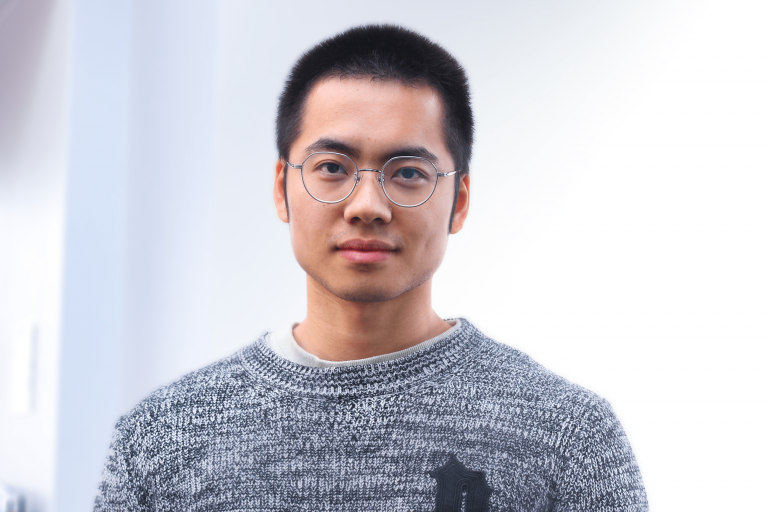
“Being a public scholar means the opportunity to broaden my PhD experience and to engage in research that would contribute to the public good. This includes building closer connections with the community such as sharing my research with the general audience, bridging the divide between academia and industry, and seeking avenues to transfer academic progress into practical solutions that can benefit the community at large.”
RESEARCH DESCRIPTION
Machine learning (ML) has achieved remarkable performance in many tasks like image classification, and already seen great prospects in many real-world applications. ML can facilitate precision medicine to empower clinical decision making, maneuver the driving vehicle without human intervention. On the other hand, existing ML technology is also brittle and prone to failure that could entail critical consequence: (1) a hardware mistake can translate to a software failure that causes an ML model to exhibit unexpected behavior, such as misclassifying a stop sign as a speed limit sign; (2) the ML model can also be easily fooled by the inputs that have been tampered with; and (3) struggle to provide both high quality of service and strong privacy protection when the model is trained on sensitive data. This engenders serious concern on the trustworthiness of ML. My research concentrates on three prominent challenges (reliability, security and privacy) in trustworthy ML and advocates a multi-faceted solution to improve the reliability, security and privacy of ML to fully deliver the promise of benefits of ML.
WHAT DOES BEING A PUBLIC SCHOLAR MEAN TO YOU?
Being a public scholar, to me, means the opportunity to broaden my PhD experience and to engage in research that would contribute to the public good. This includes building closer connections with the community such as sharing my research with the general audience, bridging the divide between academia and industry, and seeking avenues to transfer academic progress into practical solutions that can benefit the community at large.
IN WHAT WAYS DO YOU THINK THE PHD EXPERIENCE CAN BE RE-IMAGINED WITH THE PUBLIC SCHOLARS INITIATIVE?
The Public Scholars Initiative encourages students to go beyond traditional disciplinary boundary and rethink how our research can make an impact to the community. It also provides a valuable avenue to foster potential inter-disciplinary collaboration among fellow public scholars.
HOW DO YOU ENVISION CONNECTING YOUR PHD WORK WITH BROADER CAREER POSSIBILITIES?
My PhD work has great potential in strengthening existing machine learning technology to become more reliable, secure and private. My research on improving the reliability of machine learning to ensure the system’s correct functioning under the presence of hardware mistake has been adopted by Intel in their deep learning toolkit, which can be used to deliver ML solutions that are reliable against hardware mistake. I will continue to establish close tie with industry partners in my PhD study, which will ultimately create broader career opportunities.
HOW DOES YOUR RESEARCH ENGAGE WITH THE LARGER COMMUNITY AND SOCIAL PARTNERS?
Organizations that aim to delivering machine learning (ML) solutions with high reliability, strong security and/or privacy could potentially adopt my research to improve their products. For example, Intel has incorporated my research work into their deep learning toolkit, which can be used to deliver ML solutions with high reliability and low cost, which would eventually benefit numerous potential users.
HOW DO YOU HOPE YOUR WORK CAN MAKE A CONTRIBUTION TO THE “PUBLIC GOOD”?
My research focuses on three major challenges (reliability, security and privacy) in existing machine learning (ML) technology, all of which could potentially lead to highly undesirable consequences concerned with the public good. An ML product built without reliability or security in mind could be a potential safety risk to the users in domains like autonomous driving; while unregulated use of personal data in training ML models may lead to privacy infringement of the citizens. I hope that with my persistent endeavour, my work can be realized in more real-world ML products to overcome the above challenges and fully realize their potential to serve the users for good.
WHY DID YOU DECIDE TO PURSUE A GRADUATE DEGREE?
Graduate school provides me a unique opportunity to explore different scientific challenges, and dedicate my effort to contributing new knowledge that would advance the progress of the field. This challenging and rewarding experience is something that I aspire for and hence I decided to go to graduate school.
WHY DID YOU CHOOSE TO COME TO BRITISH COLUMBIA AND STUDY AT UBC?
UBC is a vibrant research community and provides numerous support to ensure the students can succeed in their pursuit of knowledge. At UBC, I also have the opportunity to work with a group of excellent researchers and gain tremendous mentorship from my advisor (Prof. Karthik Pattabiraman). Hence, I believe UBC is an ideal place for me to continue my study.
Read the original article here!
